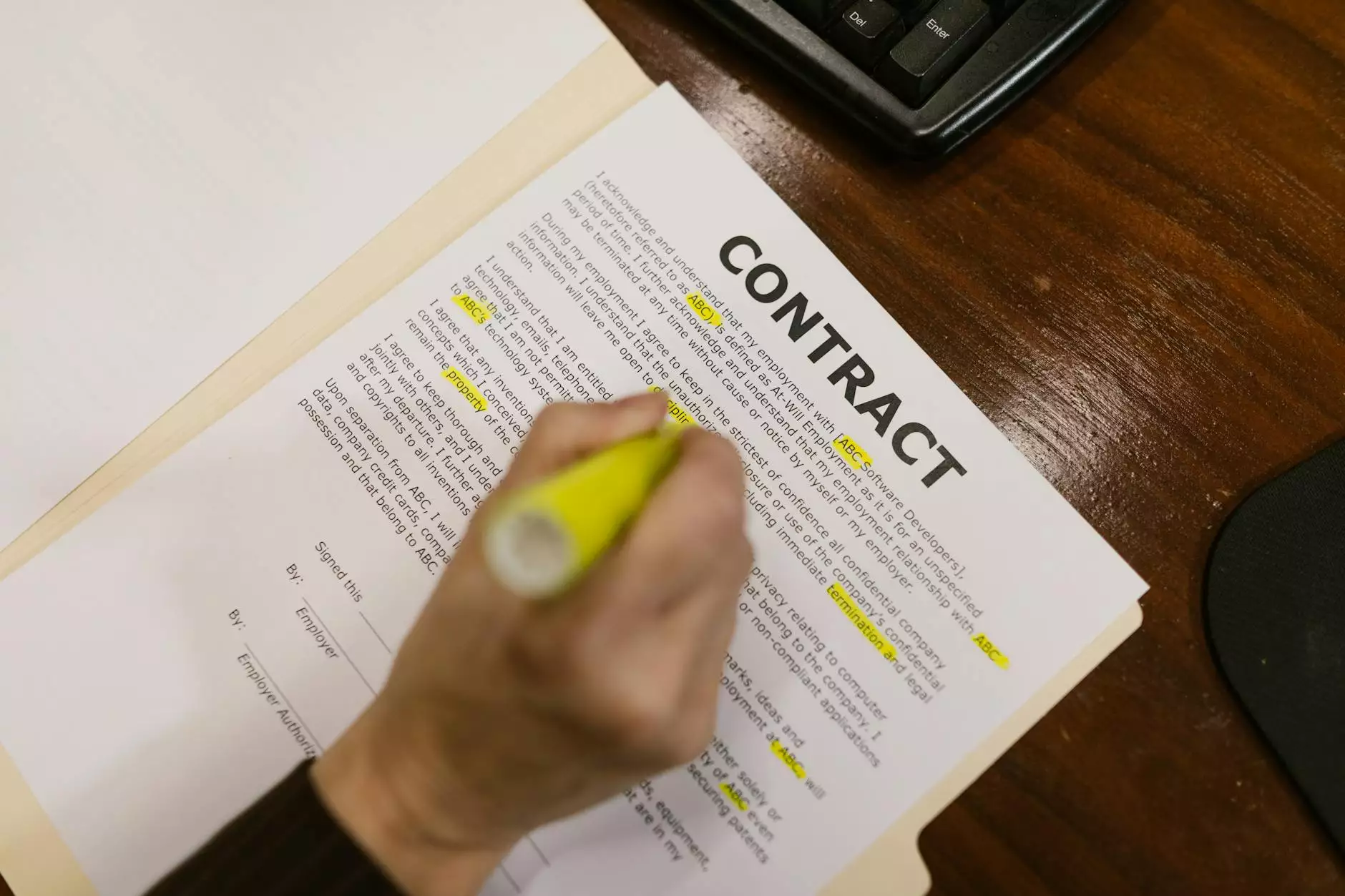The Fifth Amendment Privilege Against Self-Incrimination
Legal
Welcome to Denaro Anthony D Atty, your trusted source for legal advice and services. In this article, we will explore the importance of the Fifth Amendment Privilege Against Self-Incrimination, a fundamental right granted to individuals within the United States legal system.
Understanding the Fifth Amendment
The Fifth Amendment, part of the United States Constitution's Bill of Rights, provides various protections for individuals involved in legal proceedings. One of the most critical elements of the Fifth Amendment is the privilege against self-incrimination.
The Fifth Amendment states that no person "shall be compelled in any criminal case to be a witness against himself." This means that individuals have the right to remain silent and cannot be forced to provide self-incriminating information during a trial or other legal proceedings.
The Origins of the Privilege Against Self-Incrimination
The privilege against self-incrimination can be traced back to English common law principles and their influence on the American legal system. The concept of protecting individuals from being forced to testify against themselves can be found in legal texts dating back centuries.
The framers of the United States Constitution recognized the importance of safeguarding individual liberties and included the privilege against self-incrimination as part of the Bill of Rights. This privilege ensures that individuals maintain control over the information they disclose during legal proceedings.
Application of the Fifth Amendment Privilege
The Fifth Amendment privilege against self-incrimination applies in various legal contexts. Some common situations where this privilege may arise include:
- Police interrogations
- Criminal trials
- Civil lawsuits
- Grand jury proceedings
- Administrative hearings
It is crucial to understand that the privilege against self-incrimination extends beyond verbal testimonies. It also covers the production of documents or other forms of evidence that could potentially incriminate an individual.
Asserting the Privilege Against Self-Incrimination
If you find yourself in a situation where you believe providing certain information could incriminate you, it is essential to understand how to assert your Fifth Amendment privilege.
When faced with questioning, you have the right to politely inform the authorities or the court that you are invoking your privilege against self-incrimination. It is crucial to do this explicitly and clearly to ensure your rights are protected.
However, it is essential to consult with a qualified attorney who can guide you through the legal process and advise you on the best course of action.
Exceptions to the Privilege Against Self-Incrimination
While the Fifth Amendment Privilege Against Self-Incrimination offers robust protection, there are certain circumstances where this right may be limited or not apply.
Some exceptions to the privilege against self-incrimination include:
- Immunity agreements: In some cases, individuals may be granted immunity from prosecution in exchange for their testimony. This means their statements cannot be used against them in future legal proceedings.
- Physical evidence: The privilege against self-incrimination generally does not apply to physical evidence, such as fingerprints, handwriting samples, or DNA samples.
- Business records: In some instances, businesses may be required to produce specific records or documents even if they could potentially incriminate the business.
It is crucial to consult with a knowledgeable attorney to determine the specific applicability of the privilege against self-incrimination in your situation.
Protecting Your Rights with Denaro Anthony D Atty
At Denaro Anthony D Atty, we understand the importance of protecting your legal rights, including the Fifth Amendment Privilege Against Self-Incrimination. Our team of experienced attorneys is dedicated to providing comprehensive legal services to ensure our clients' rights are upheld throughout the legal process.
Whether you require guidance on asserting your privilege against self-incrimination or need professional representation in a legal matter, our team is here to help. Contact Denaro Anthony D Atty today to schedule a consultation with one of our knowledgeable attorneys.
Disclaimer: The information provided in this article is for general informational purposes only and should not be construed as legal advice. For specific legal guidance regarding your situation, please consult with a qualified attorney.




